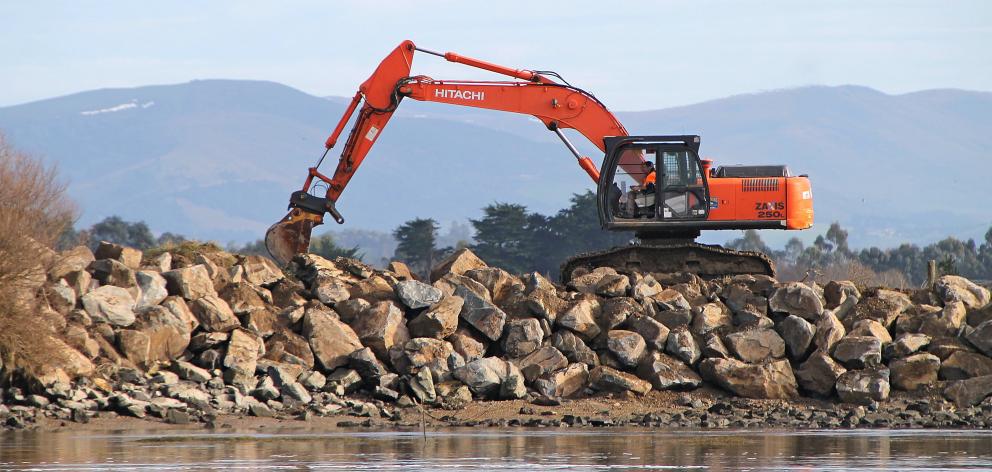
Otago Regional Council natural hazards manager Dr Jean-Luc Payan said rising southern swells the previous weekend combined with high river-flow, high tides and storm-surge waves to cause the damage.
"There’s been rapid erosion alongside the rock wall at the Koau mouth, including damage to culverts draining the Puerua River into the Clutha," Dr Payan said.
Sections of the natural dune system had also eroded, he said.
Natural hazards analyst Tim van Woerden said the Puerua River had naturally formed a new outlet directly to the sea.
"There has been ongoing shoreline retreat and coastal erosion along the Clutha coastline for a long period ... it’s a highly dynamic environment," Mr van Woerden said.
Engineering manager Michelle Mifflin said the area was regularly monitored, and on July 1, large swells prompted heightened monitoring before a response plan was initiated which focused on stabilising the river mouth and culverts to maintain effective drainage through the Lower Clutha scheme.
The rock-wall breakwater limits movement of the river mouth, confining flow for efficient ocean discharge in all conditions, and the response plan included rebuilding with existing rock and additional armour rock from local quarries.
While there was no immediate danger to the public, the council deployed aircraft at low tide last Friday to gather laser-imaging and high-resolution imagery to assess potential changes to natural hazards around the coastline of the Clutha Delta, she said.
The work might continue this week, she said.
The council’s updated data would help assess future shoreline retreat and climate change effects on sea level and groundwater rise, rainfall and river flows.
The council manages drainage and flood protection for 9300ha around the Clutha Delta, with 110km of flood-banks, 153km of drains and five pump stations.
"Along with infrastructure maintenance, ORC has already identified natural hazards and climate change as significant issues that will affect the Lower Clutha in future and we are developing a long-term adaptive strategy to respond to natural hazards," Ms Mifflin said.












